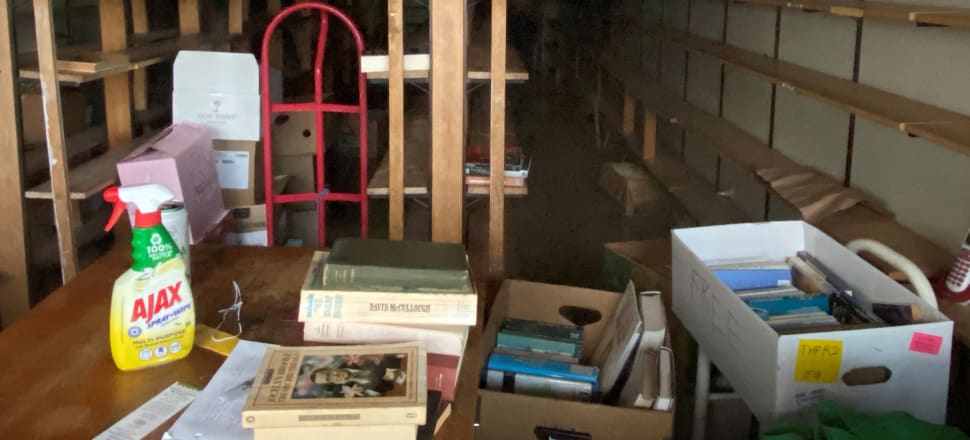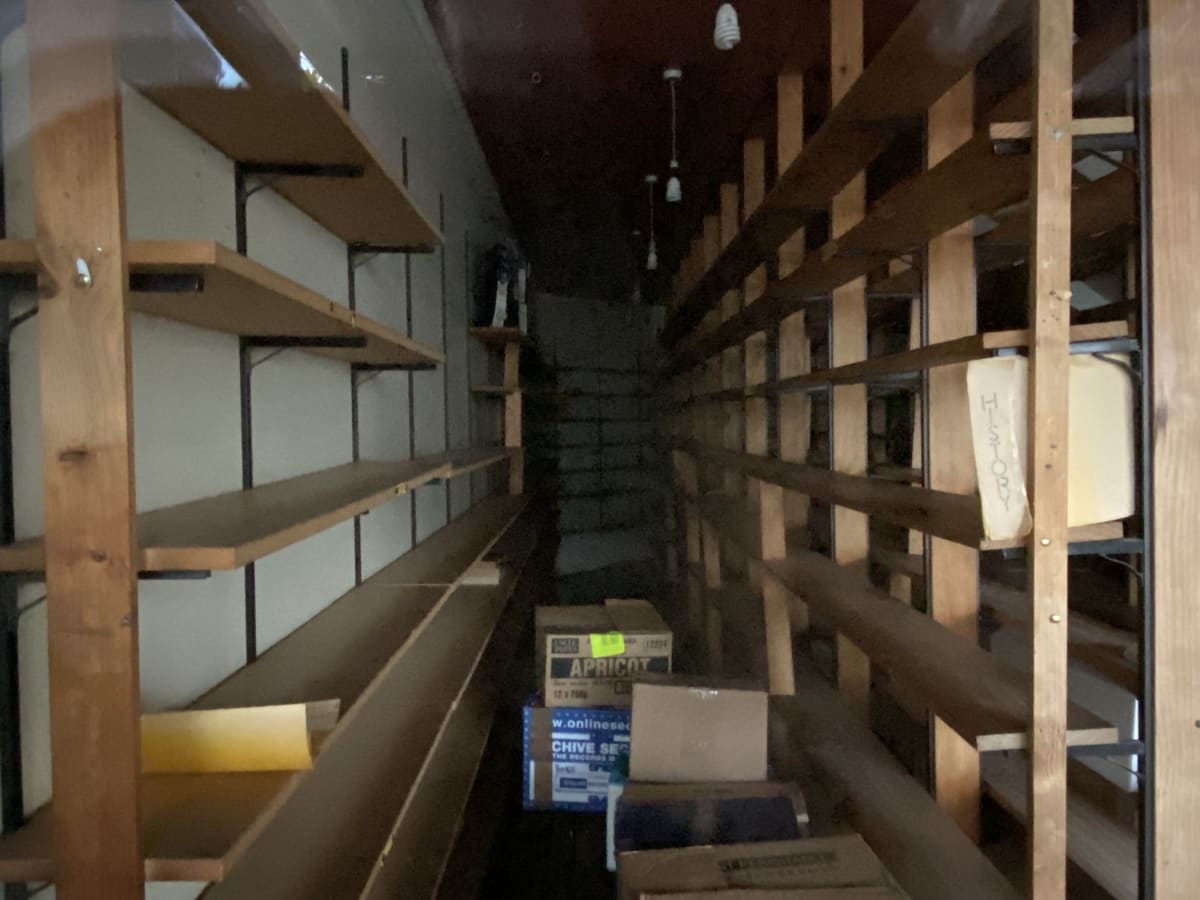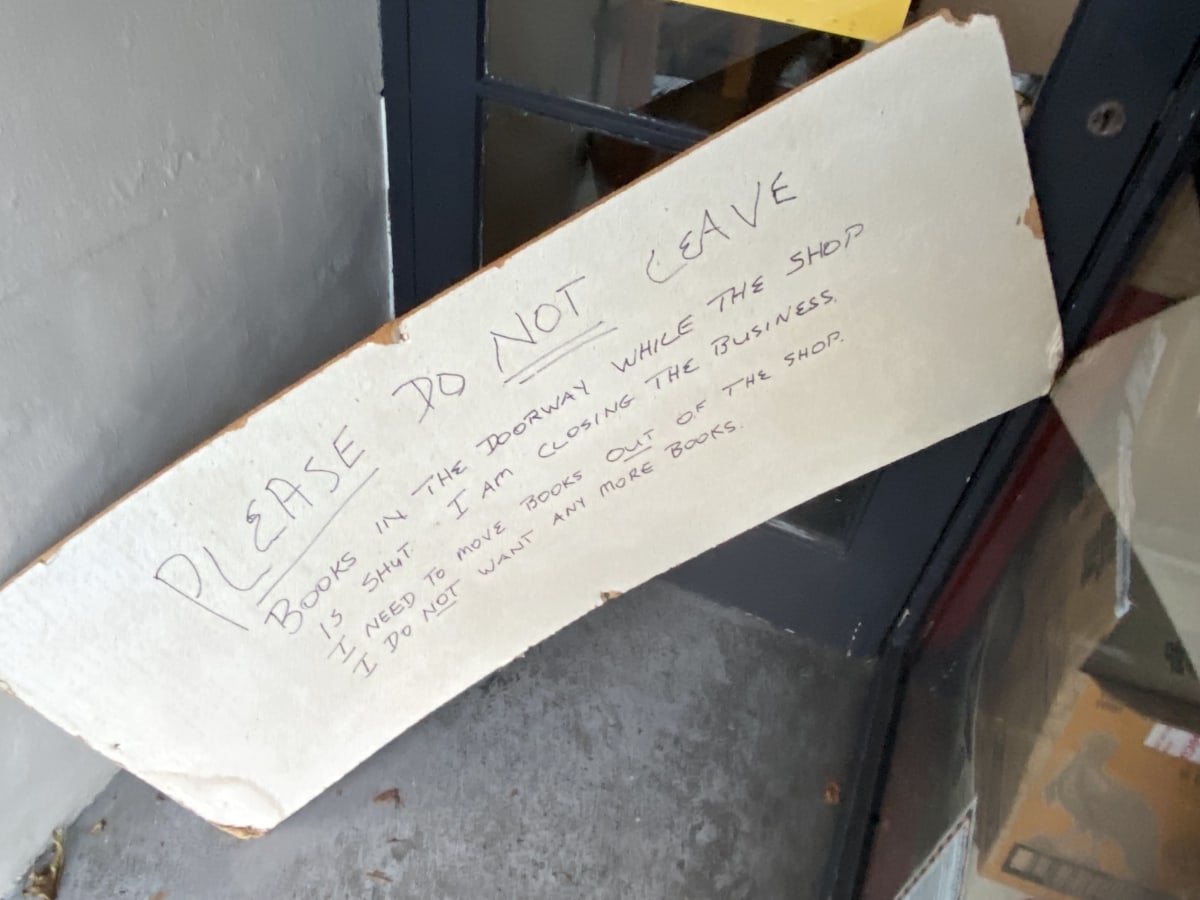
Steve Braunias on the end of a second-hand bookstore era in Herne Bay
Dominion Books - one of the great second-hand bookstores of Auckland, a fixture at its address at 230 Jervois Road in Herne Bay for 37 years - has closed. The shop is empty. Even the shelving has gone, most of it to a miniature railway club. Heather Northey, sole owner and operator of this literary jewel all these years, made fast work of her exit: once she decided to get out, and put up a small, discreet yellow sign in the front window advising that the shop would close, it took three weeks to either sell or dump the entire stock of about 15,000 books. I took 75 of them: I now have 0.5 percent possession of a shop I loved.
Gosh it was a good shop. The front window display was a changing work of art. In just two shelves facing the street, Heather created a vastly appealing library in miniature. The front window display exerted a terrible pressure on any literate passerby to come in and take home something necessary to their mental and emotional wellbeing. The front window display was the only advertising she ever went in for. It was the only advertising she ever needed.
Gosh it was nice in there. The shop was divided into four narrow rows. It was a tight squeeze to get past a browser; better to head for another row, and see what you might find. A gnomic but possibly apposite line from James K Baxter: "You won't get there unless you are there." The back wall was a row of classics and biographies - I gravitated towards that wall, drawn not just by the genre but the feeling this was the blackest depths of the shop, its darkest corner, the end of its cave.

Gosh it has been sad watching the books disappear, the shelves stripped. Heather told the same story to everyone who came in these past weeks and asked why she was closing - the landlord had died aged 99, he had always been reluctant to raise the rent and only ever did so in tiny amounts, the inheritors were terribly sorry but it just wasn't making any money and they would have to charge a proper rent, and all that was fine by Heather, who is 73 and thought: time to stop working, time to retire. And everyone who came in these past weeks then said the same thing to her: fair enough, but we'll miss you.
Gosh I know I'll miss it. Herne Bay is a beautiful neighbourhood. The northern slopes fall towards the water, painted with painted little boats. It's so nice to walk the scented avenues at dusk. But it's full of some of the stupidest people in New Zealand, a land of the long white wealthy settler with nary a thought in their avant-right heads - the ambient IQ is as low as low tide, and about to drop even further with the absence of Dominion Books. It civilised the natives.
Gosh I spent a lot of time there. It opened on February 25, 1986. Dominion Books was a roundabout name: Heather had first worked in a second-hand bookstore at 714 Dominion Rd, Balmoral, later owned by the legendary Christina Brazier, mother of the even more legendary Graham Brazier, singer and bardic eminence of Hello Sailor. He worked in his Mum's shop for a number of years; strange, and wonderful, to think of one of the wildest men in New Zealand rock enjoying a cameo as bookseller at a second-hand book emporium.
Gosh I love second-hand book emporiums. I hardly ever go to a new bookstore. They bore me senseless. I don't see the point. Certainly they are all about the very thing I dedicate much of my working life to writing about - new books, new authors - and of course I'm terribly grateful that they sell my own books. But as a reader, as someone who wants the entire mad and obscure history of literature to choose from, and, I think this may be crucial, as a cheapskate, I feel at home and in feverishly good spirits in a second-hand bookstore. The crazy surprises, the strange finds; the forgotten genius of years and even centuries past.

Gosh I was grateful to Heather. She gave the shop a guiding intelligence. She knew her stuff; she was always reading; she had a lovely presence. She said one day that she liked a story I had written about the Singing Cowboy - a genuine legend, the stage name of country singer Jock Hulme, who busked everywhere and anywhere for many years, still does, near his rest home in Mt Eden - and then she told a sad story about a little boy who adored the Singing Cowboy, felt a real connection with him, but who died when he was nine, knocked over by a car after cricket practice at Victoria Park. I have bad hearing. I wasn't following all of her story. I said, "And did you know this little boy?" She said, "Oh. Yes. Michael. My son."
Dominion Books - a theatre of dreams and possibilities, stockist of books and authors from antiquity who you'd never heard of but once read would never forget - is no more. That first week she decided to sell, she was offering a bag of books for $20. The second and third week, you could take what you wanted for free. The rest went to a recycling tip in Onehunga. I felt a terrible kind of panic: I had to get in, I had to make every visit count. The possibilities were no longer endless, the dreams were ending. And so I got in and took things such as The Faber Book of Tennis and Land Lifted High by New Zealand mountaineering writer John Pascoe (1952) and Best American Short Stories of 1995 and Invercargill-born writer Dan Davin's 1956 novel Sullen Bell, and, so far, best of all, certainly oldest of all, a 1765 edition of The Castle of Otranto by Horace Walpole. I read it these past few days in a state of delirium. Walpole created a new genre, and then named it: The Castle of Otranto is the very first gothic novel. It truly is a knock-out, every page a new tension, with a strangely erotic undercurrent - Walpole himself was supposed a lifelong celibate, and a contemporary described him as always walking on tiptoe, "as if afraid of a wet floor". The book is in bad condition. It's wonderful to contemplate the thick and unruly stitching of the spine as the handiwork of three centuries past: this book is older than New Zealand, the colonised version. The paper is rough, coarse. Each page ends with the word that begins the first sentence of the next page. All the soft s's are written as f's: "While the Prince was in this fufpence, a confufed noife of voices ecchoed through the diftant vaults." I was grateful for that archaism; it slowed the read, gave me more time to relish the story, the weird, restless brilliance of it, set almost entirely in a haunted castle. Walpole writes in his Introduction to The Castle of Otranto that he attempted to blend two kinds of Romance, the ancient and the modern, that he wanted the fabulous to co-exist with common life and common speech, "to conduct the mortal agents in this drama according to the rules of probability; in short, to make them think, fpeak and act as it might be fuppofed mere men and women would do in extraordinary pofitions." The result is ftunning. What a writer, and what a book. I would never have noticed it: Heather insisted I take it. One last gift from Dominion Books.








